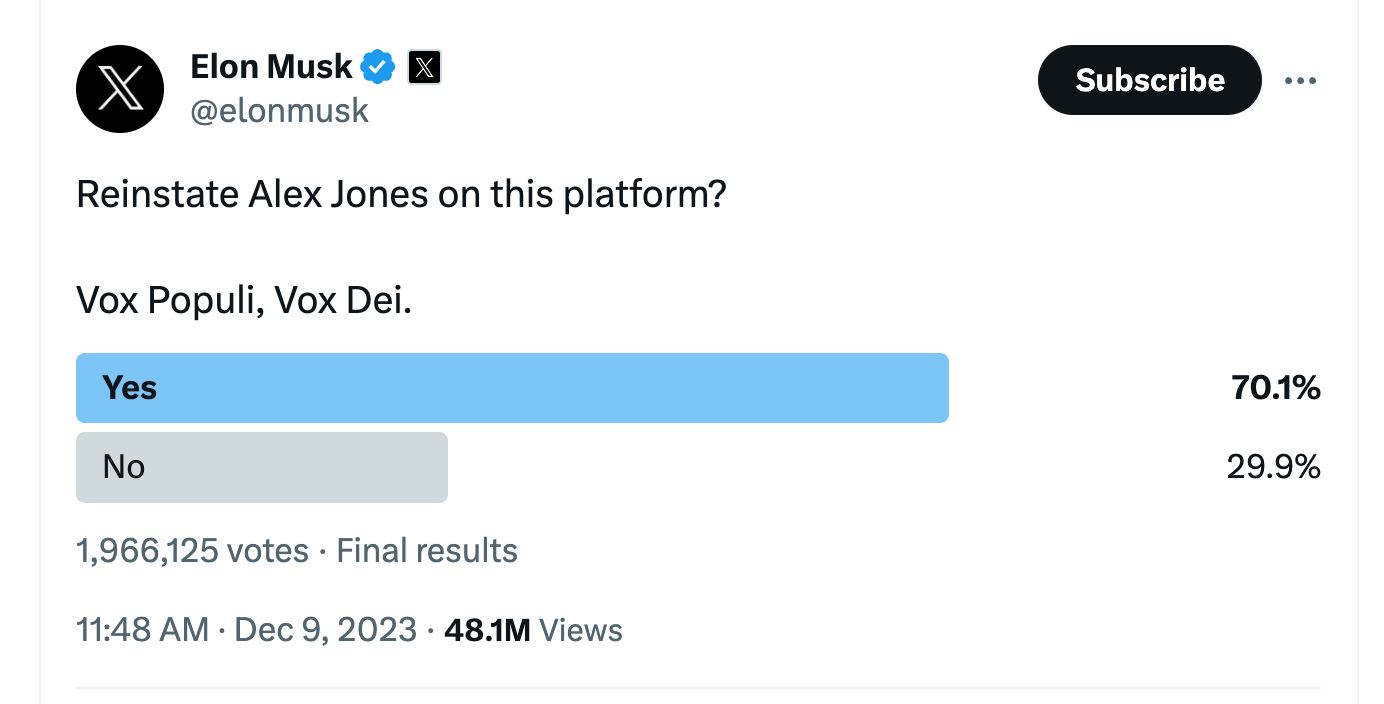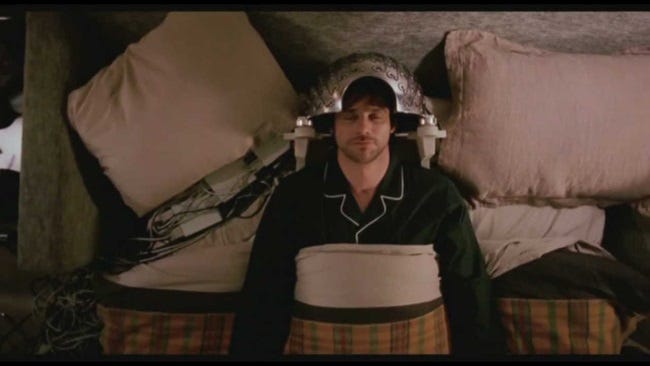One of the narrative clichés that we see regularly in tv and the movies is the cop or civil servant who does one small favor for the bad guys, only to have the threat of exposing that ethical compromise be used as extortion to leverage escalating favors. In for a penny, in for a pound, as it were. Though it’s not quite the same, I tend to consider this in the same rhetorical category as “moving the goalposts,” an abusive tactic that often begins by appearing almost reasonable. But ultimately, it relies on (and fixes) an asymmetry between the people involved—only one of them has control over where the line is drawn. One side sets the terms, and the other must abide by them regardless of how far (or how unfairly) they’re moved.
That question of where we draw the line is one that’s perpetually interesting to me. There’s the Overton Window, which postulates that there’s a spectrum of (political) opinions that are acceptable in a given moment, and that spectrum can be shifted to the right or left (or however we want to characterize those directions). The way that moderate and even conservative Republicans have been excommunicated for their occasional unwillingness to ride-share in TFG’s clown car is one example, as is the dismissal of mainstream media (or higher ed) as intrinsically biased against the hard Right. The Democratic party has become small-c conservative in part because of the Republicans’ willingness to push their side of the window past the point of no return.
If there’s a problem with the metaphor of the window, though, it’s that it encourages us to imagine ourselves standing in place gazing out onto a political landscape. It feels more accurate to me to suggest that the (Overton) window is an opening into ourselves, displaying what we will accept as normal and reasonable. Certainly the media plays a role in its shape and scope, as do the (often-disappointing lack of) ethics enacted by our officials both elected and unelected, but we are not disinterested observers of a discursive performance. We make decisions, cast votes, and draw our own lines.
It’s something I’ve thought a lot about in the wake of the past two presidential elections, for fairly obvious reasons. Electoral choices, particularly when it comes to national politics, are always compromised, but it’s worth asking ourselves just how much we’re willing to put up with when it comes to our own candidates. How much of our own integrity are we willing to sacrifice in order to see our candidate win an election? Where do we draw the line, and what do we do when our candidate crosses it? I realize that this may be an old-fashioned way of approaching democracy (expecially in our horserace era), but I still think it’s important to think about candidates’ records, commitments, and promises, and to hold them accountable. Even if it’s someone I’ve voted for (or would never vote for), I ask myself that question about where I’d draw the line.
Like many folks, I suspect, the past year on Twitter has had me thinking about this a lot in the context of social media. For months now, I’ve stuck around on the site, visiting it maybe 2-3 times a week. It’s the only place where I have access to a fairly eclectic group of writers and thinkers and friends and colleagues, a network that I’ve spent the past 15 years building and polishing. Ir represents an extensive investment of personal energy, and it’s part of what the new ownership has relied upon as he’s slowly (and sometimes not so slowly) dismantled all of the structures and qualities that made the site compelling to so many in the first place. That is, he hopes that the sunk cost of personal investment will outweigh his efforts to turn the site into a personal Greek chorus of rage-baiting trolls.
He’s crossed a number of lines in terms of the accounts he’s been willing to reinstate, but each time I was able to persuade myself that the benefits of the site were worth more to me than the broader context where I reaped those benefits. This week, though, that Faustian bargain came to a head for me.
I don’t follow him, and like I said, I don’t check in all that often, so I wasn’t aware of this poll or its results until after the fact. Once I was, though, I realized that my personal line had been irrevocably crossed. I don’t know what will happen—perhaps nothing—but I realized that I have continued to support, however implicitly, a platform where not only is this a possibility, but the majority of engagement is driven by folks who believed that this reinstatement should happen. Don’t get me wrong, I’m sure that those positive votes have been goosed to hell by the bot farms, but 70% of nearly two million votes stood in favor of granting a platform to a person whose self-confessed, intentional, cancerous evil will continue to reverberate throughout our discourse for years to come. I wasn’t shocked—I believe that no bridge is too far when it comes to fueling the narcissistic echo chamber that Twitter has become—but a place where that vote can even occur (regardless of the actual outcome) is not a place where I feel safe or welcome.
It’s time for me to leave.
I’ve already deactivated my secondary accounts, but I’ll be spending some time on my main. I’m going to work back through it in reverse chronological, deleting most entries and retrieving some of those that I’ve bookmarked and saved over the years. I’ve already begun this process, and it feels a lot like I’m wiping my memory—in a sense, I suppose I am. My plan is to try and get it done by the end of the year, but we’ll see. It won’t really matter much if it takes me shorter or longer. Once the memories are wiped, I’ll be deactivating that account as well.
It feels a little dramatic or self-indulgent to be posting about quitting a platform, even one that has been so important to me over the years. Nor do I begrudge those who are gritting their teeth and sticking it out—I understand their reasoning, because it was mine until the events of this week. Ultimately, each of us must determine for ourself where that line is located, and what we’re willing to do if and when it’s crossed. But I’ve decided this week that I’m no longer willing to be fuel, however small a piece, for the dumpster fire that this platform has become.






